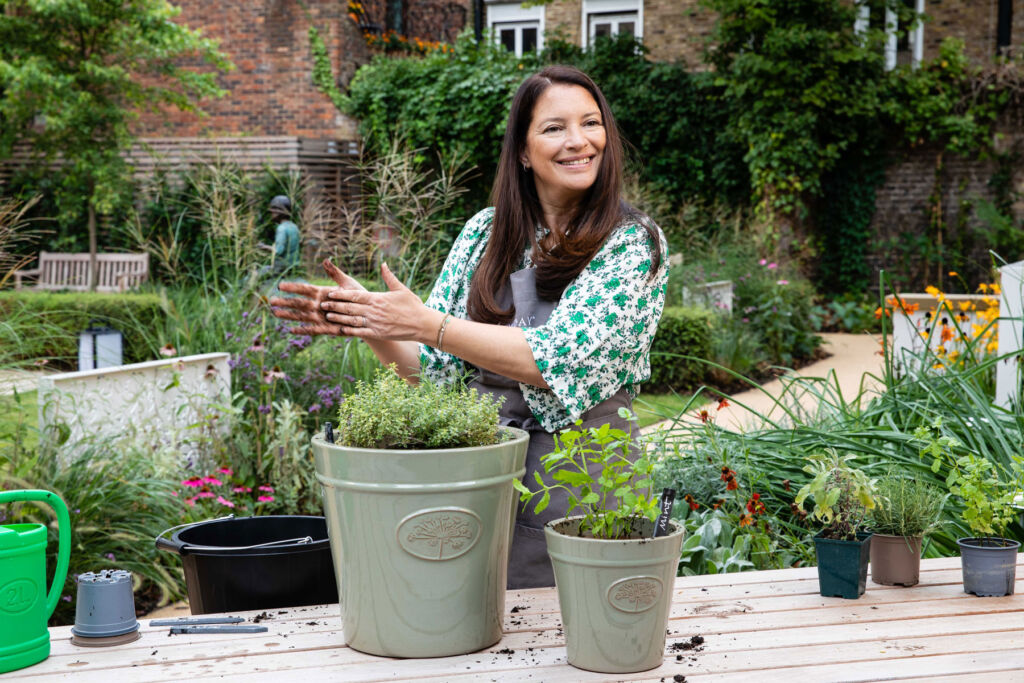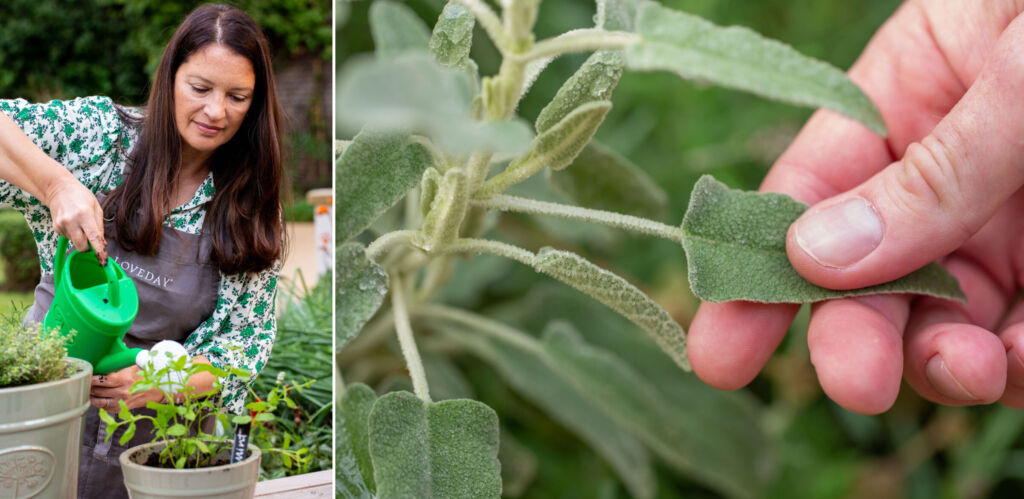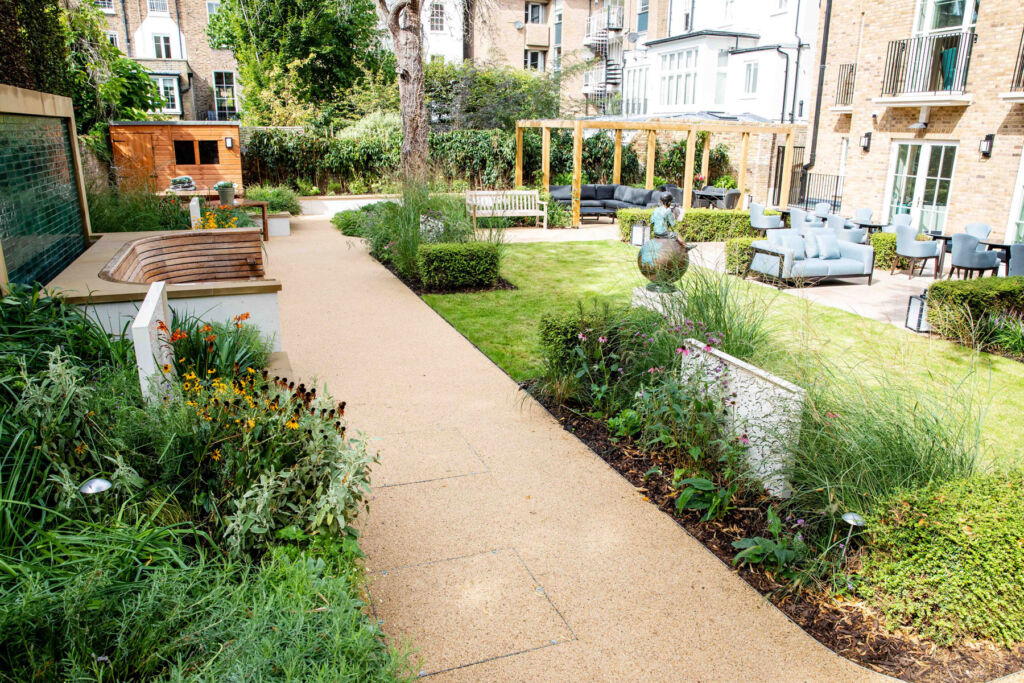

Loveday & Co, an award-winning provider of specialist dementia and senior care in the UK, is leading the way by making beautiful sensory gardens for their Members to enjoy. Their newest property, Loveday Abbey Road, has a world-class sensory garden, which is an enclave of tranquillity for Members, staff, friends and family to enjoy.
With an estimated 850,000 people in the UK with dementia and an ageing population, dementia is one of the world’s most important health, economic and care issues.
Alzheimer’s, one of the most common causes of dementia, is a progressive disease that causes memory loss, confusion, and problems with concentration and can negatively affect mood and many aspects of daily living. Activities such as gardening are great pursuits for people living with dementia, helping to alleviate some of the symptoms of dementia.


Gardening helps stimulate the senses and memories, reduces stress and improves mental and physical health. Gardens can be calming places, perfect for reflection and relaxation, and they can also be social spaces, allowing shared experiences for children and the elderly to engage with the environment and with each other.
Robert Speker, Loveday’s Head of Member Lifestyle and Activities at Loveday, incorporates gardening into the weekly programmes at all of the Loveday Residences.


“Gardening can be hugely beneficial for both people living with dementia and their caregivers. Not only is it a physical and social activity, but it can also be rewarding as people watch plants grow and even enjoy the produce, such as fruit and vegetables. Gardening can also help relieve stress, stimulate the senses and provide reminiscence, evoking childhood, youth and yesteryear memories.”
The benefits of gardening for people living with Alzheimer’s include:
- Enjoying the outdoors – fresh air, vitamin D, and natural light are all important benefits of gardening outside.
- Stimulating the senses – colour, smell, sounds of the leaves blowing in the wind, and even taste are all stimulated.
- Physical activity – gardening is a great form of exercise for the whole body – raking, digging, walking and bending are all good for the muscles and cardiovascular fitness, helping to boost oxygen levels, improve strength, stamina and motor skills, as well as coordination.
- Stress release – gardening can help alleviate tension and improve sleep, positively affecting mood and energy levels.
- Improving confidence – sowing seeds, nurturing plants, tending to the garden and watching gardens grow can instil confidence, pride and a sense of achievement, alleviating feelings of dependency and helplessness.
Meticulously researched and designed, the garden at Loveday Abbey Road is thriving with plants selected not only for their aesthetic appeal but also for scent, touch, taste and even sound, helping those with dementia to connect with the outside space.
The culinary team picks herbs from the garden to ensure all the freshest ingredients are used within the menus. Members can exercise, dine or simply relax year-round in this beautiful outdoor setting, complete with calming water features (above) and a stunning sculpture of a child – something found in all Loveday properties.
Laurence Geller, Chairman and CEO of Loveday, said, “We’ve created unique sensory gardens that are tailored to our Member’s needs. They are beautiful and functional landscapes that enhance the lives of our Members and their families.”
Best dementia-friendly plants:
For those wanting to add dementia-friendly plants to their gardens, Gardeners’ World presenter Rachel de Thame shares her top plants for a dementia-friendly sensory garden:
- English Lavender (Lavandula angustifolia) – has an evocative, long-lasting scent, and the flowers can be cut, dried, and used as potpourri
- An assortment of other herbs – Rosemary, Mint, Sage and Thyme all have a beautiful fragrance, plus edible leaves that can be used in cooking
- Star Jasmine (Trachelospermum jasminoides) – an evergreen climber with glossy leaves and starry white flowers, producing heady perfume from late spring to summer
- Lamb’s ear (Stachys Byzantina) – forms a carpet of thick, fluffy leaves with a woolly texture that feels as soft as a lamb’s ear
- Allium – beautiful late spring flowering bulbs in shades of purple, add colour to the garden and lovely decorative dried seed heads in autumn and winter
- Purple Coneflower (Echinacea Purpurea) – stunning daisy-shaped flowers with a distinctive orange cone at the centre, very popular with pollinators
- Chocolate cosmos (Cosmos atrosanguineus) – amazing chocolate scented, deepest burgundy flowers
- Tree fern (Cyatheales) – a striking fern with large textural leaf fronds and a tactile main stem
- Feathertop grass (Pennisetum villosum) – soft flowers in summer that feel lovely to touch and arching foliage which creates a rustling sound in the breeze
- African Lily (Agapanthus) – large flowering globes in bright blues, mauve and white that provide summer colour and structure amid surrounding plants
The garden at Loveday Abbey Road is now open for scheduled media tours. Please get in touch with the team to arrange a viewing.
For more information on Loveday & Co, visit www.lovedayandco.com.
Read more health news and features here.
